Morocco المغرب
Jemaa el Fna Square at sunset in Marrakesh, Morocco
Cultural Investigation: Morocco
Geography
Morocco, officially known as the Kingdom of Morocco, is located in Northern Africa. It is bordered by the Atlantic Ocean, the Mediterranean Sea, Algeria, and Western Sahara (Mauritania, a non-self governing territory claimed by Morocco). Morocco also shares small borders with Spain, specifically the Spanish exclaves of Ceuta and Melilla. Additionally, they share maritime borders with Portugal.
Morocco has an area of 446,550 km² (excluding Western Sahara) and a population of 34.8 million (2017). The capital city is Rabat and the largest city is Casablanca.
Religion
Islam is the main religion in Morocco, accounting for 99% of the population. Most Moroccan Muslims are Sunni. The state allows and guarantees the freedom of religious beliefs. There is a small population of Christians, however most are foreigners. There is also a small Bahá'í community and a Jewish community, although most Jews have moved to Israel and only a fraction remain in Morocco.
Language
Arabic is the official language in Morocco, with several Berber dialects. French is typically used as the language of business, government and diplomacy. The literacy rate is 52%.
History & Politics
Morocco has a long and rich history. The country has been ruled by a series of dynasties such as the Berber Almoravids, Merinids and Saadians. In 1912, the country’s strategic location near the mouth of the Mediterranean attracted the interest of Europe. Morocco was colonized and divided into French and Spanish protectorates. After a long struggle, Morocco regained their independence from France in 1956 and has since remained relatively stable and prosperous compared to regional standards. The Western Sahara territory was annexed during the late 1970s; The final resolution on the status of the territory remains disputed and unresolved.
Morocco is a member state of the League of Arab States. The League's main goal is to "draw closer the relations between member states and co-ordinate collaboration between them, to safeguard their independence and sovereignty, and to consider in a general way the affairs and interests of the Arab countries".
Morocco is ruled as an Islamic parliamentary constitutional hereditary monarchy. The king is Chief of State and is both the political and spiritual leader (i.e. the "Commander of the Faithful”). The King presides over the Council of Ministers and appoints various members of government. The head of government is the prime minister. The parliament, located in Rabat, is the bicameral legislature. The two chambers are the House of Representatives and the House of Councillors (upper house). The power of parliament is very limited, but has been reinforced by constitutional reforms in 1992.
Cultural Values & Worldview
Moroccan perception of time is considered to be polychronic flexible. This means they value relationships over schedules, see time as flexible, are reluctant to control or measure time, value tradition, and tend to focus on the present. Moroccans can also occasionally dip into a cyclical perception of time, meaning they believe humans do not control time and they view time as repetitive.
Most Arab cultures are considered flexible polychromic. However, their Islamic beliefs provide a cyclical understanding when it comes to their perception of time. In traditional Arab and Islamic culture, they are discouraged from committed to an exact date and time for future events. They see the future as unknowable and subject to intervention from the divine. We also see moments where nature controls time. For example, Islamic calendars are based on lunar calendars, subject to moon sightings, and prayer times are linked to the position of the sun.
Since the future is unknowable and beyonds a person’s control, Muslims will always respond with the phrase “Inshallah” إن شاء الله when making plans. This phrase means “God willing.” This practice comes from the following verse in the Quran:
“And never say of anything, ‘Indeed, I will do that tomorrow,’ Except [when adding], ‘If Allah wills.’ ...” [Quran 18:23-24]
Today, the phrase “Inshallah” can also be used in a comical sense or a polite way of declining an invitation. For example, a friend may ask, “are you attending my event this weekend?” Someone may respond with, “Inshallah” but in reality they mean, “no, I’m not going to attend.”
Religion plays a major role in Moroccan culture by shaping their worldview. It is present in their day to day life and even business culture. Businesses will close on Friday afternoons to allow time for prayer. Friday afternoon prayer is called Jummah and is usually followed by a short sermon, or khutbah, by the imam. It is also common for some businesses to close down early and negotiations to be postponed during the holy month of Ramadan.
Family is a key component of Moroccan culture. They highly value long-term personal relationships and traditional family values. Often times, close friends are basically considered family. Trust and friendship plays a major role in both social and business culture.
Morocco is a collectivistic culture. Communal food is served almost all the time. One important things to note when dining with a Moroccan family or during a business meal: Use your right hand to eat. The left is considered unclean and used for personal hygiene. Additionally, it is common for practicing Muslims to say bismillah before they eat, meaning “in the name of God.”
Moroccans value respect and honor. They are considerate to everyone they meet and expect the same in return. Courtesy and hospitality is extended to all. However, shame is something to be avoided. In Morocco, the most prized possession is one’s honor and dignity. Moroccans do not want to lose face, take great care in how others perceive them and aim to ensure their reputation is never damaged. Moroccans have an expression, hshuma, used for situations or behaviors which are seen as socially or culturally unacceptable.
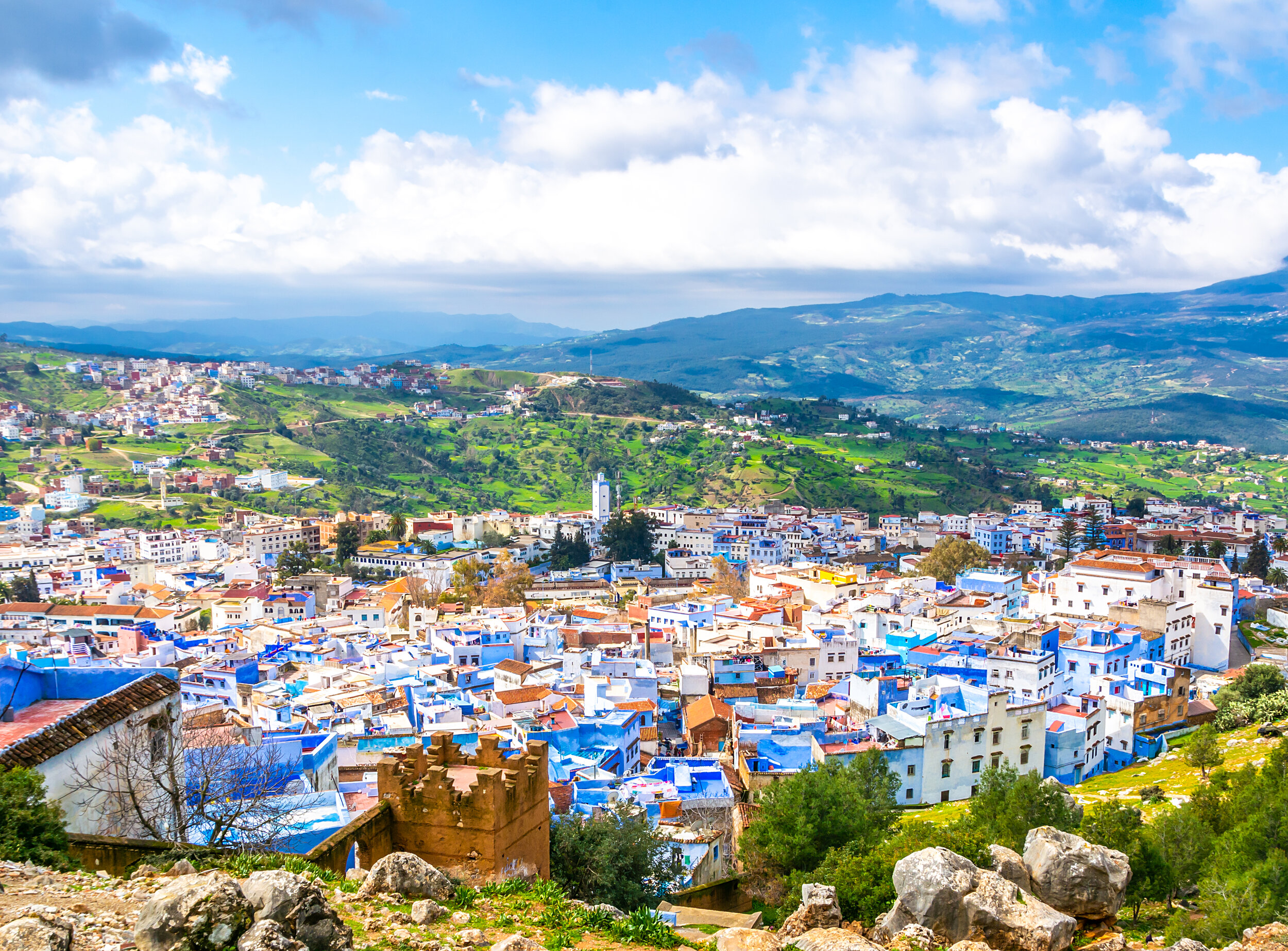
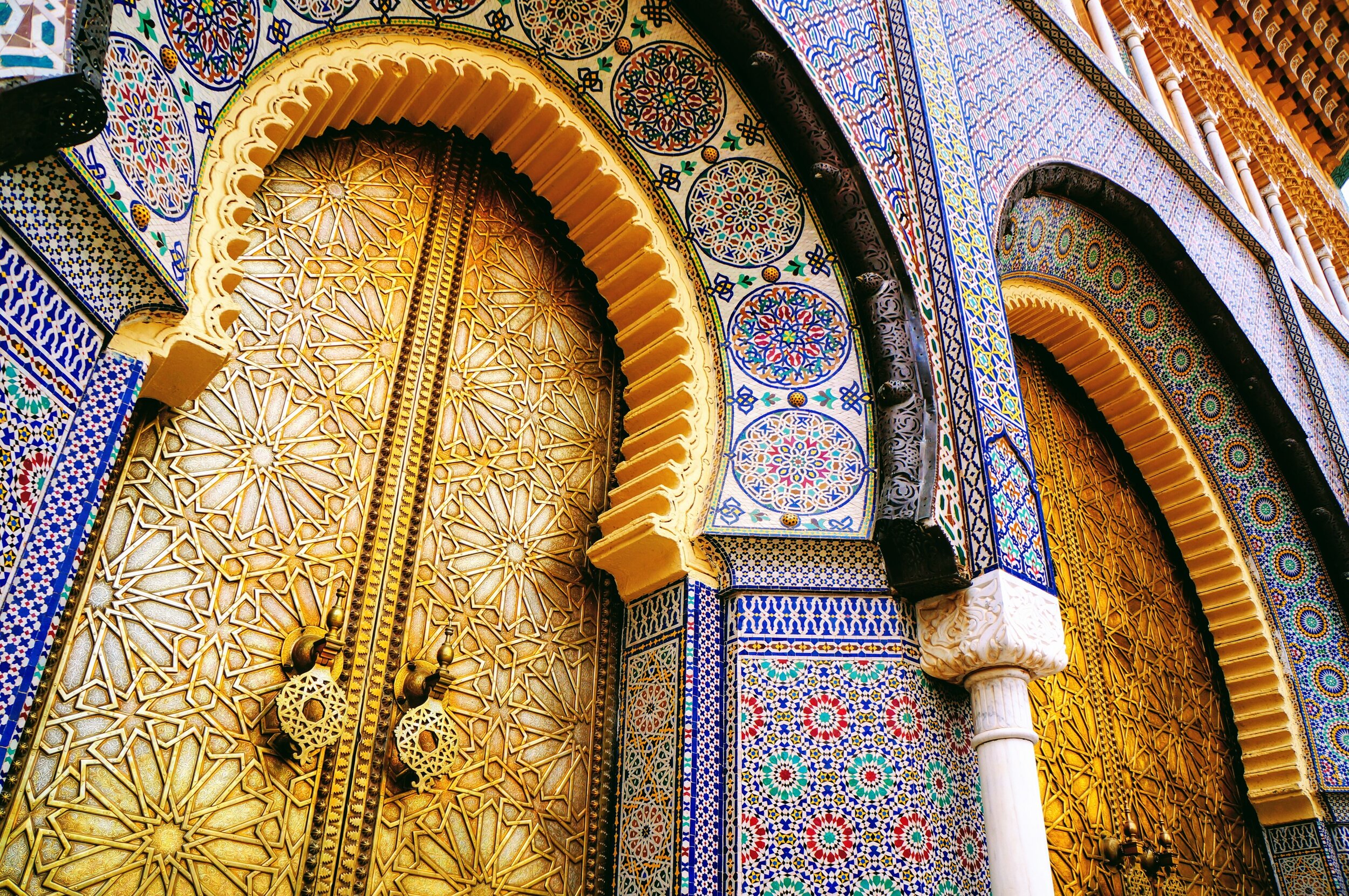
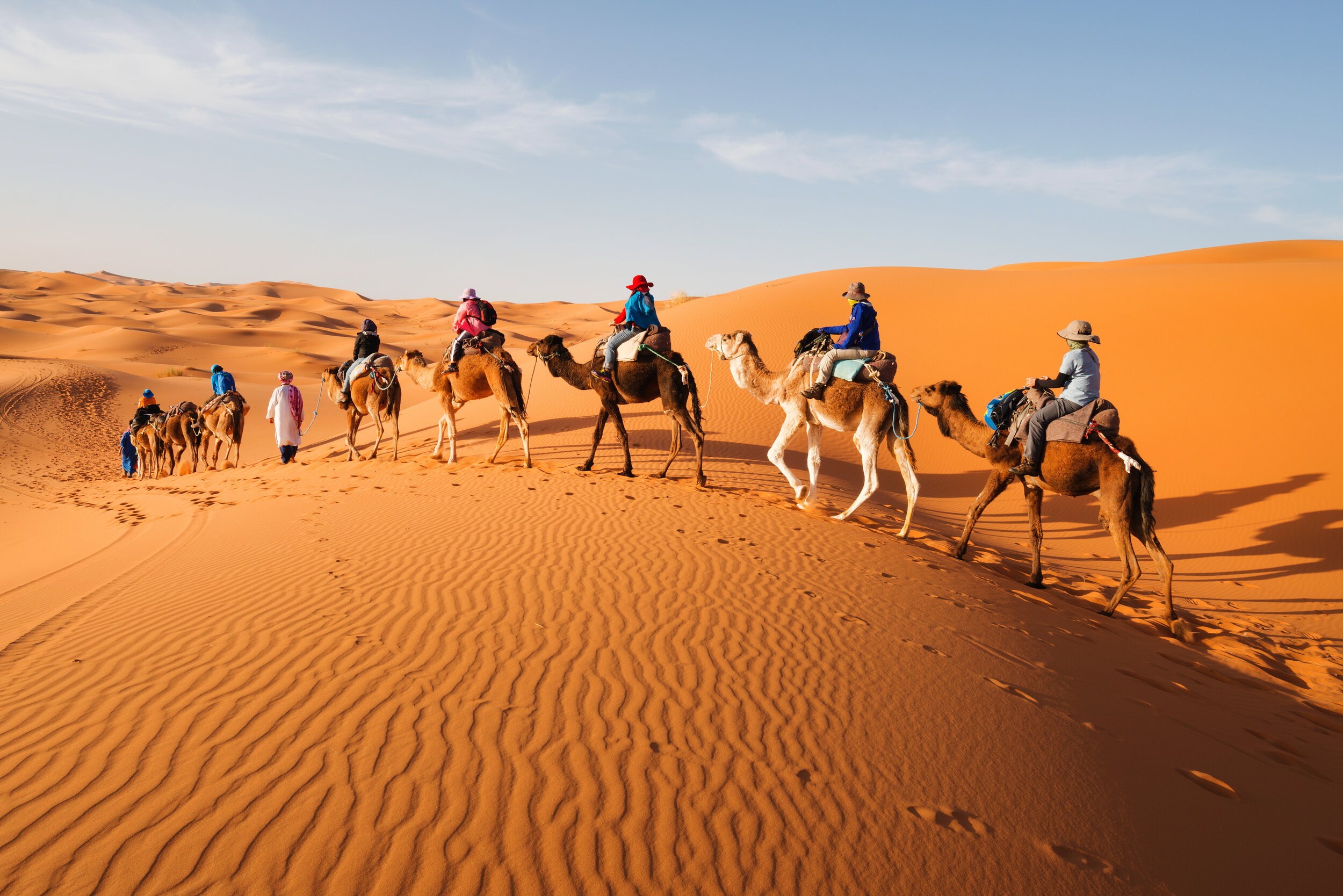
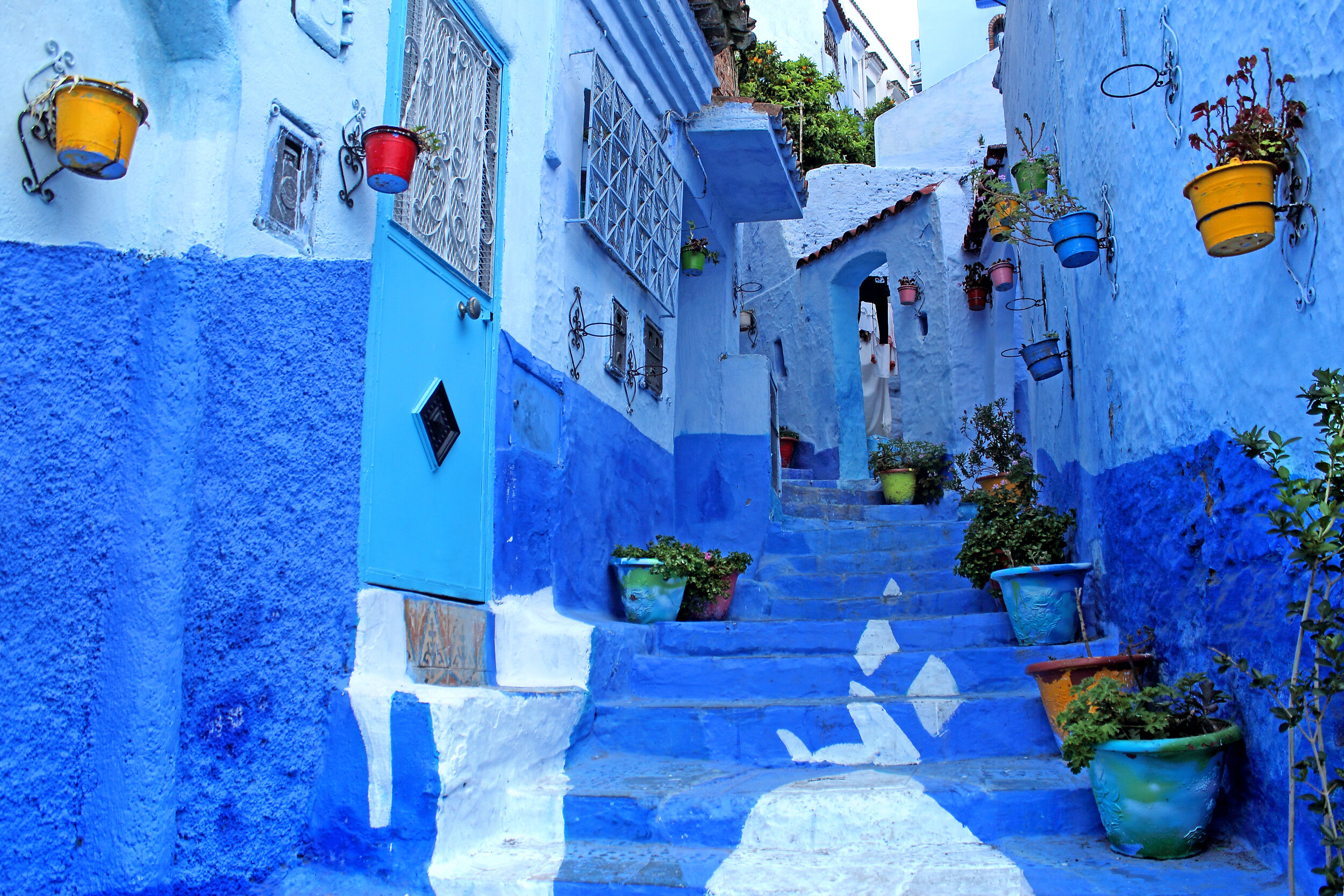
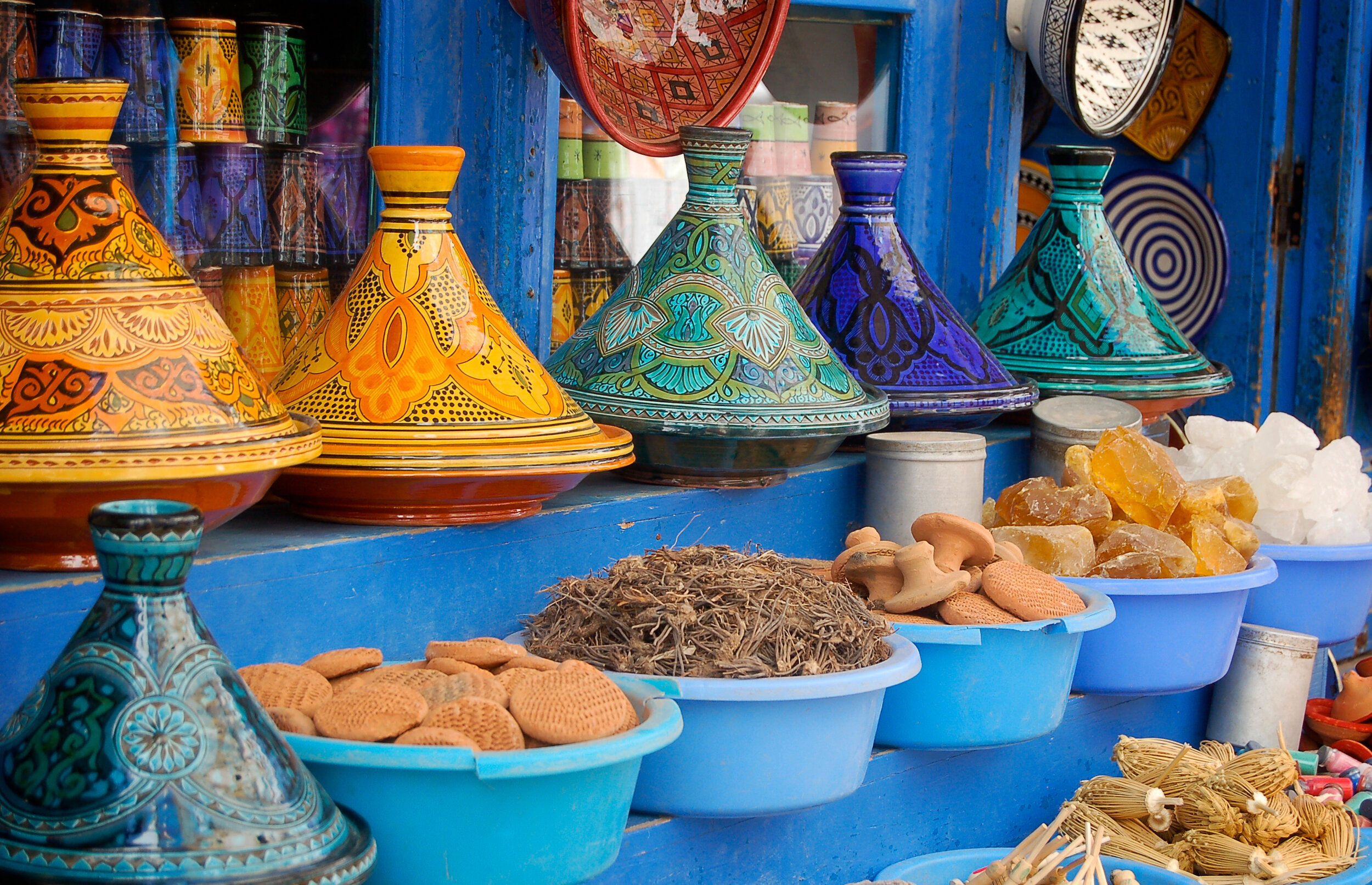
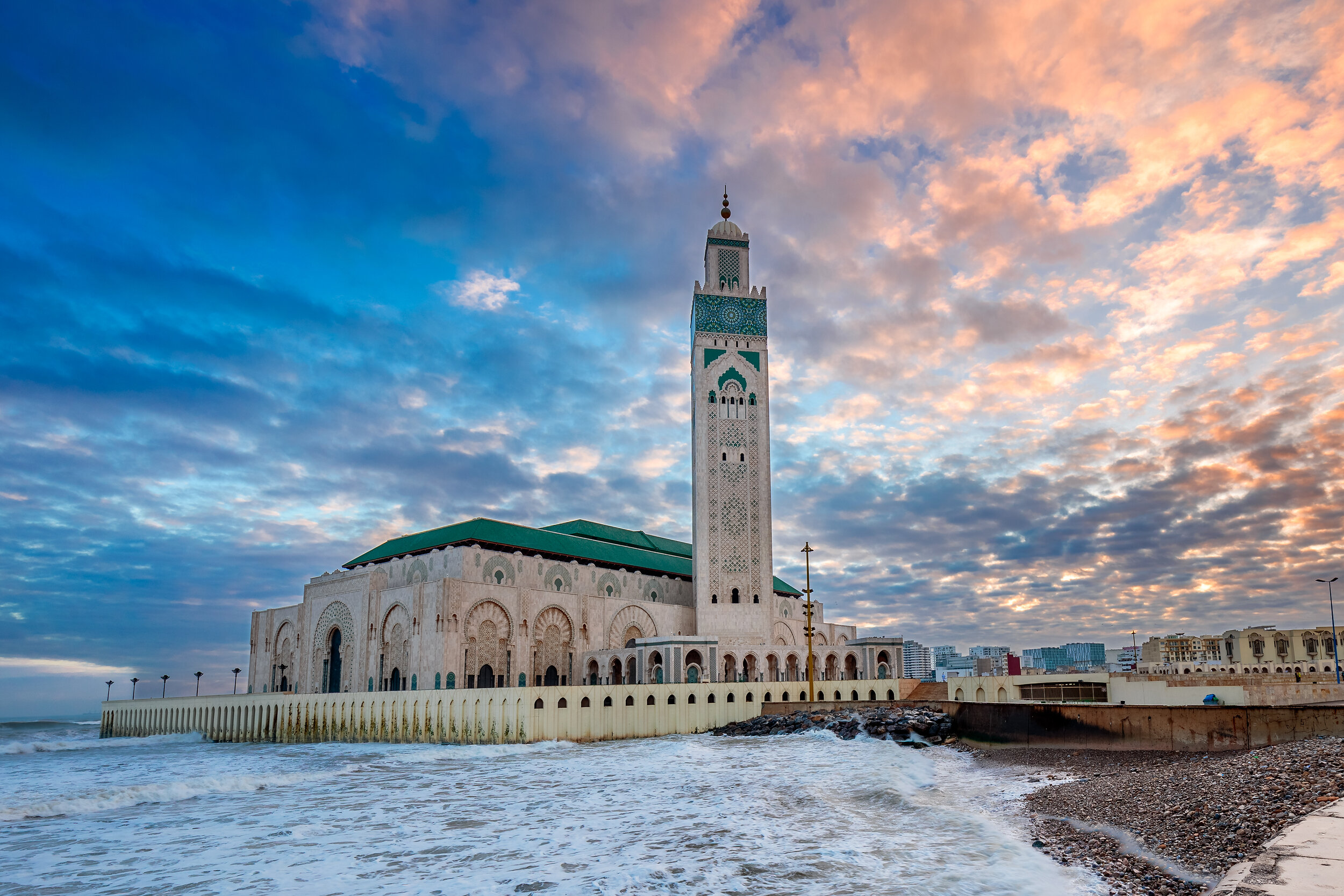
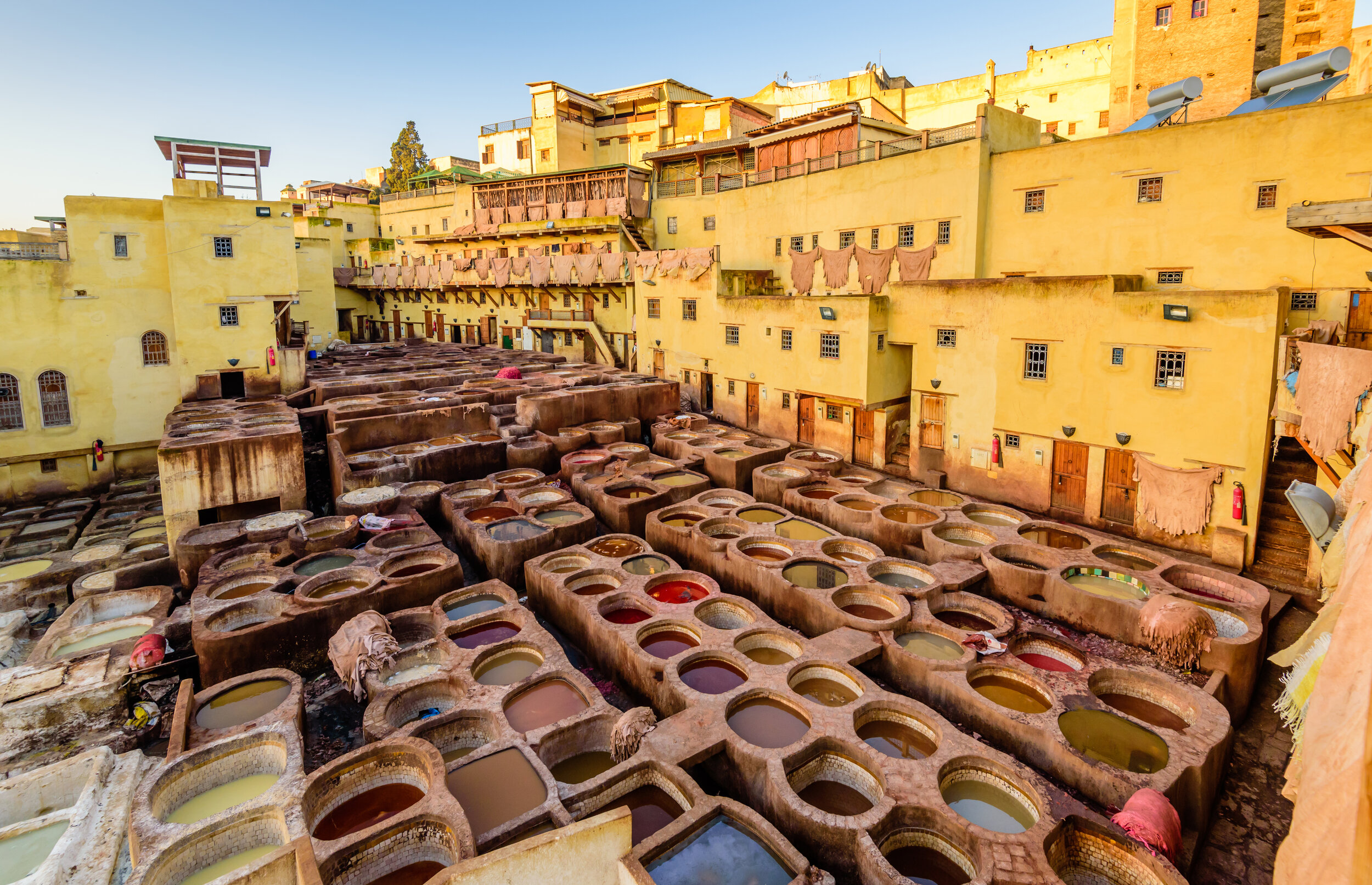
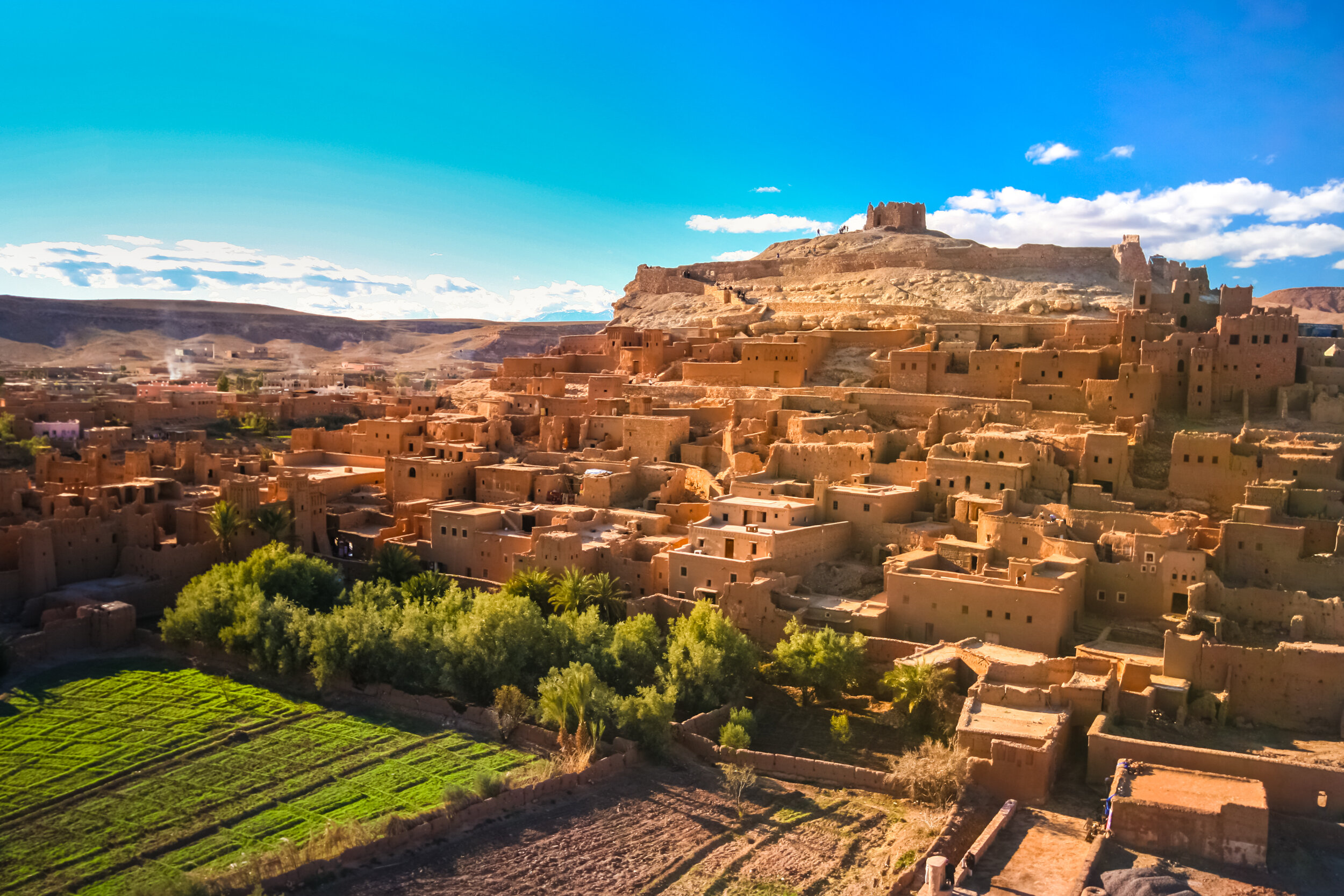
Communication Styles
Their communication style is typically very careful and indirect. Sometimes, direct confrontation could cause a loss of face and may result in shame, which is to be avoided. According to Edward Hall’s theory, Morocco would be considered a high-context culture. They value the message and context more than the actual words alone.
As a high context culture, people from Morocco will often use hand gestures and facial expressions to convey their meaning. Some non-verbal communication relied upon are paralanguage, body movements, gestures and emblems.
When greeting someone in Morocco, men will typically shake hands and may kiss once on the cheek. Two women will usually greet each other with alternating cheek kisses depending on the situation and relationship. When a man greets a woman, it is advised to allow the woman to extender her hand first for a hand shake. If she does not, then politely nod or slightly bow - It is considered taboo for religiously observant women and men to touch.
Eye contact is a sign of respect and looking away may signify disagreement. In addition, the extent of eye contact is necessary when navigating social hierarchies. For example, it is respectful to maintain eye contact with someone of equal status. However, it is appropriate for a person of lesser importance to not meet eyes with a person of higher rank. Lastly, eye contact plays a role for religiously observant Moroccans. For example, if a woman lowers her gaze, it is appropriate for a male to lower his gaze as well.
Business Culture & Leadership Styles
David Victor wrote a book called International Business communication. He classifies business cultures as either monochronic or polychronic, depending on how time is viewed. (Goodman, 2013) Morocco would be considered a Polychronic business culture. Some characteristics that describe a polychonic business culture are the following:
Schedules are subordinate to personal relationships
Relationships are used to coordinate activities
Appointment times are flexible
Many tasks are handled simultaneously
Breaks and personal time are subordinate to personal ties.
Time is perceived as flexible and fluid
Work time and personal time are not clearly separated
Tasks are measured as part of the organization’s larger goals
Morocco scores a very low 14 on Hofstede’s Long Term Orientation. This means that they prefer to maintain time-honored traditions and norms while being suspicious of societal change. There is great respect for traditions and a focus on achieving quick results. In fact, Goodman states that many Islamic cultures place more emphasis on timeless values versus innovation and financial investment for future gain, which is viewed in a negative light compared to the West.
If you’re from a monochronic business culture, such as the US, and want to conduct business with a polychronic business culture, Goodman recommends to be flexible, to throw out your ethnocentrism and enter the global business community. “Old barriers dissolve, and old concepts dissipate, as nations come together.” (Goodman, 2013) Professor Hirshorn’s lecture also recommends, when working with flexible cultures, to clarify expectations (e.g. try to determine the actual start time), avoid strict deadlines whenever possible by adding some wiggle room, provide a wider window of time for appointments, and to depersonalize issues (e.g. don’t interpret lateness as disrespectful).
Business meetings are not to be rushed or cut short for the sake of an arbitrary schedule. Instead time is viewed as an open-ended resource. The clock does not regulate the duration of communication. Moroccans will take as much time as needed to form a relationship with someone rather than rush to a solution.
In the workplace, employees are not likely to argue in a public setting. Since Morocco is a high context culture and values the notions of face, shame and respect, they will avoid any conflict and will tend to use non-confrontational styles instead. There is a Moroccan adage that goes: “Praise your friend in public but reprimand him in private.”
Morocco is a mix of Arab, Muslim, Berber, Spanish and French cultures which require a complex business etiquette. There are Islamic values mixed with French system of business practice. There is a strong sense of hierarchy and personal relationships are highly valued in Moroccan business culture. It is common for Moroccan business to get to know their foreign counterparts before striking a deal or doing business with them.
Decision-making in Moroccan companies is mostly top-down process and employee participation is limited. Employees may be consulted, however, their input does not necessarily impact the decision. Generally, decisions are not reached quickly. Instead they require several rounds of reflection and negotiation. Business hours are reduced during the month of Ramadan. It is recommended to schedule meetings before or after this period.
Resources
Country Comparison. (n.d.). Retrieved September 15, 2020, from https://www.hofstede-insights.com/country-comparison/morocco/
Denton, A. (2013, March 25). Moroccan And Rollin. Retrieved September 15, 2020, from https://moroccanandrollin.wordpress.com/
Ebrahim, A. (2016, August 14). Understanding "Inshallah" - How different cultures understand time. Retrieved September 15, 2020, from https://www.linkedin.com/pulse/understanding-inshallah-how-different-cultures-time-ahed-ebrahim/
Goodman, M. B. (2013). Intercultural communication for managers. Retrieved from https://ebookcentral-proquest-com.ezproxy1.lib.asu.edu
Lewis, R. (2014). How Different Cultures Understand Time. Retrieved July 14, 2020, from https://www.businessinsider.com/how-different-cultures-understand-time-2014-5
Morocco. (n.d.). Retrieved September 15, 2020, from https://www.nationsonline.org/oneworld/morocco.htm
Pact of the League of Arab States, 22 March 1945. The Avalon Project. Yale Law School. 1998. Archived from the original on 25 July 2008. Retrieved September, 15 2020.
